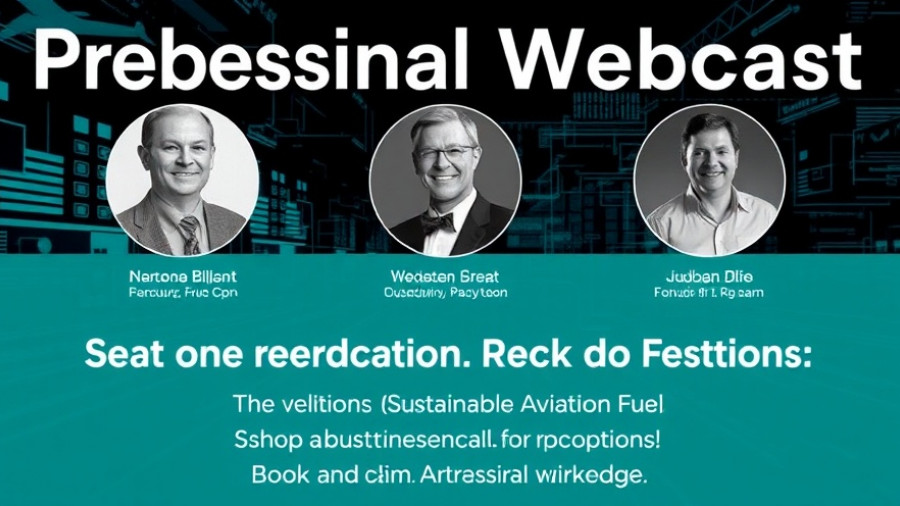
Understanding SAF and Its Importance
Sustainable aviation fuel (SAF) has emerged as a crucial solution for reducing emissions in the aviation industry. Traditional jet fuel poses significant environmental challenges, while SAF can potentially cut greenhouse gas emissions by up to 80% over its lifecycle. As air freight becomes more prevalent, the quest for sustainability intensifies, making SAF not just a choice, but a necessity for many businesses.
What is Book and Claim?
The Book and Claim model allows companies to financially support SAF even when they cannot physically obtain it. This system decouples the environmental benefits of SAF from its actual physical supply, akin to how renewable energy credits work. For example, if an airline finances SAF production elsewhere, it can claim the corresponding emissions reduction, effectively bolstering its sustainability efforts without needing direct access to SAF.
The Benefits of SAF for Small Businesses
For small and medium-sized enterprises (SMEs), leveraging SAF through the Book and Claim model provides a cost-effective avenue to support sustainability goals. This approach not only showcases a commitment to environmental responsibility but can also attract customers who prioritize sustainability in their purchasing decisions.
A Path Toward a Greener Future
The aviation industry is continuously pushing towards a greener future, and initiatives like Book and Claim are pivotal in this transition. By fostering a demand for SAF, companies can signal the need for increased production, leading to greater availability and potentially lower prices in the future. It’s a win-win situation that emphasizes not just compliance with regulations but proactive participation in the global effort to combat climate change.
Getting Involved
Now is the time for small and medium-sized businesses to explore the opportunities presented by SAF and Book and Claim. Engaging with sustainability initiatives can enhance brand reputation and foster consumer loyalty. By investing in cleaner aviation fuels now, businesses can set the stage for long-term growth in an increasingly eco-conscious market.
 Add Row
Add Row  Add
Add 










Write A Comment